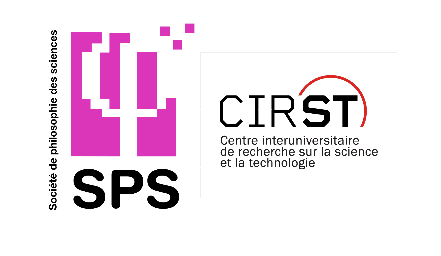Conférences plénièresListe ne contenant que les conférenciers ayant confirmé leur présence :James Robert Brown (University of Toronto)Janet A. Kourany (University of Notre Dame) Stéphanie Ruphy (Université de Provence) Stephen Turner (University of South Florida) Description des conférences plénières:The Eradication of Smallpox: Lessons for Epistemology and Politics, James Robert BrownThe eradication of smallpox was one of humanity's greatest achievements. In spite of many cultures, religions, and divergent approaches to treating the disease, the world as a whole brought about this spectacular result. A number of philosophical questions arise concerning just how this was done, both epistemic and political. Contemporary analytic philosophers and social constructivists seem largely incapable of understanding this major event. I will try to say why and to also try to shed some light on future projects of a similar nature. Human Enhancement: A Role for Philosophers of Science, Janet A. Kourany Human enhancement—the quest to improve or even transform human beings through technological means—has been called the most important issue of the twenty-first century. Yet, the public is ill prepared to deal with it. True, the issue has been publicly discussed for years by experts in fields as diverse as bioethics and medical research and information technology and nanotechnology and cognitive science and economics and political science and public policy and history and the law and even science fiction writing and philosophy of mind. But the discussion has been marred by serious shortcomings, empirical as well as normative. As a result, the public has been offered wildly divergent, incompletely argued recommendations regarding human enhancement from the various experts rather than a coherent, well-developed plan of action. I shall argue that there are at least three important ways in which philosophers of science—philosophers who have thus far been visibly absent from the enhancement debate—can contribute to it. And I shall try to cajole my fellow philosophers of science into doing so. La science doit-elle être autonome pour être utile ?, Stéphanie Ruphy
L’idée que la science est susceptible de répondre aux besoins, tant épistémiques que pratiques, de la société, à la condition qu’elle en soit détachée, a longtemps dominé les façons de concevoir les rapports entre science et politique. Ce « modèle linéaire », certes encore très influent, est de plus en plus remis en question : l’existence d’une relation à sens unique entre connaissances scientifiques, supposées ne pas véhiculer de valeurs, et décisions politiques ne s’avère plus tenable, tout comme l’affirmation qu’une science libre de déterminer ses priorités est mieux à même de contribuer à la prospérité économique et à l’amélioration de nos conditions de vie. Il faut, dit-on, « démocratiser la science », et la voie privilégiée pour le faire serait celle d’une participation accrue du public. Je
montrerai qu’entre un retour à un Âge d’or, mythique, d’une science
autonome, imperméable aux valeurs, et une forme participative de démocratisation de la science, d’autres voies sont non seulement
possibles, mais préférables car plus réalistes dans la mesure où elles s’intègrent
plus naturellement aux institutions et au fonctionnement de nos démocraties
représentatives. Evelyn Fox Keller, in a recent article, asks what should the strategy of climate scientists be in the face of reluctance to accept the results of science? Her answer is that they should be more aggressive in asserting the consensus and dismissing their critics. This is a strategy, but one with consequences that reveal some important constraints on expertise, that involve dilemmas inherent in the position of the expert. Another case that was resolved differently, the resignation of Oppenheimer during the decision to build the H-Bomb, reveals some of these dilemmas: Oppenheimer realized that his actions had compromised his credibility and chose to withdraw. Climate scientists have been slow to realize that their actions have compromised their credibility, and have responded in ways that compromise it further, notably by speaking beyond their competence, thus risking the credibility of science itself. But this is a standard problem faced by all expertise applied to public decision-making that results from the gap between decision and science, complicated in this case by the unusual organizational structure of the science itself. |
| Personnes connectées : 1 | Flux RSS |

|

